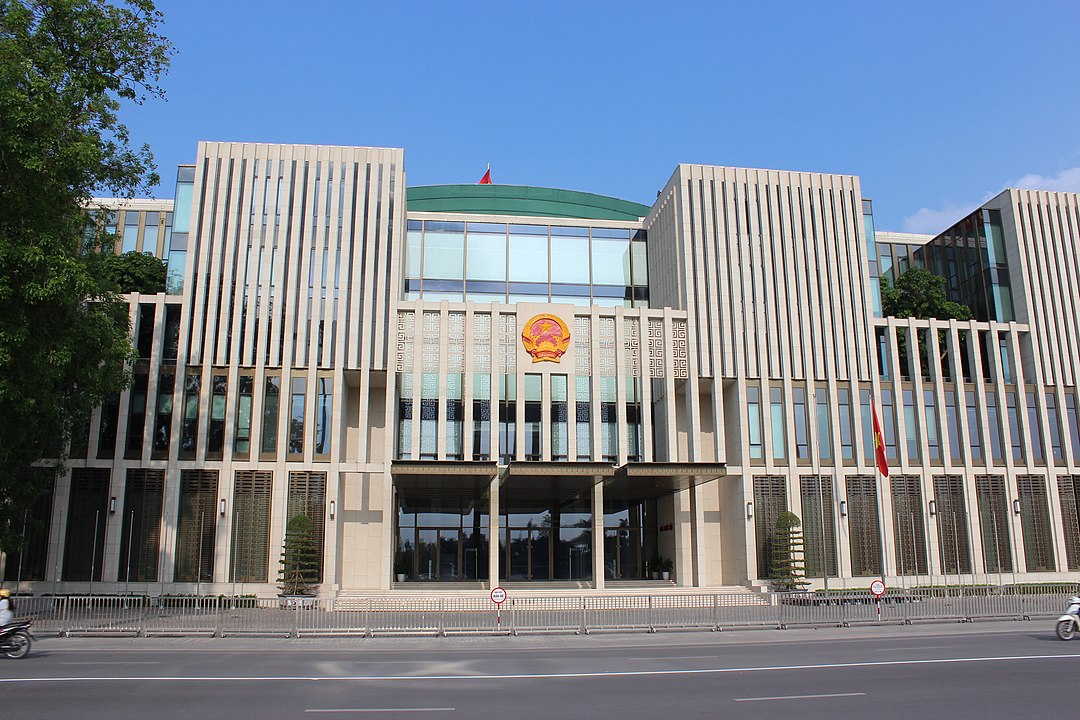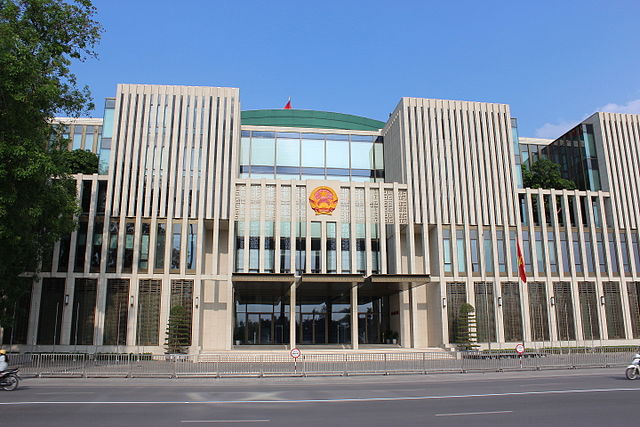The National Assembly of Vietnam approved Resolution No. 72/2018/QH4 ratifying the Comprehensive and Progressive Agreement for Trans-Pacific Partnership (CPTPP) and relevant documents on 12 November 2018. As a result, the CPTPP became effective with respect to Vietnam as from 14 January 2019.
Following the ratification of the CPTPP, a number of Vietnam laws will need to be amended in order to become harmonised and compliant with the provisions and obligations contained in the CPTPP. The current Law on Intellectual Property (the IP Law) is not an exception to this, despite the fact that Article 5.3 of the IP Law already provides that “Where the provisions of the international treaties to which Vietnam is party contravene the provisions of this Law, the former shall be applied”. Similar wordings on priority application of international treaties can be found in other Vietnamese laws, as the express recognition of a principle, but further amendments and legislation are in practice necessary for the purpose of implementing such principle.
As required by the CPTPP itself, the relevant authorities shall therefore prepare the relevant implementing documentation and submit it to the National Assembly of Vietnam to pass any necessary amendments at its closest session (ie at its seventh session in May-June 2019).
Below we shall review and comment on the draft amendments of the IP Law relating to different IP subject matters, which were submitted to the National Assembly (according to the Statement of the Government No. 126/TTr-CP dated 04 April 2019):
Trademark
The current IP Law provides in Article 148.2 that “a contract for use of an industrial property object shall be effective as agreed by the parties, but shall only be effective towards a third party upon registration with the state administration authority of industrial property rights”. This means that, in practice, the use by the licensee of an IP subject in an unregistered contract may be ignored by the relevant authorities for subsequent transactions such as royalty payment, remittance of royalty overseas or termination of trademark for non-use during five consecutive years.
Article 18.27 of the CPTPP seems now to remove this problem, by expressly providing that no member country can require the recordal of a trademark licence in order to establish the validity of such licence. For other objects of industrial property, such as patented inventions or industrial designs, the current provision of Article 148.2 remains unchanged.
To comply with Article 18.27 of CPTPP, two Articles of the IP Law, namely Article 136 and
Article 148, are proposed to be amended as follows:
Article 136.2 is amended to become: “136.2. The owner of a trademark shall be obliged to use it continuously. The use by a licensee according to a trademark licence contract is deemed to constitute use by the holder in case the trademark has not been used for a continuous period of five years or more, the validity of the trademark registration certificate shall be terminated in accordance with Article 95 of this Law”
Article 148 is amended, with respect to items 148.2 and 148.3, as follows:
“148.2. For the industrial property rights established on the basis of the registration as referred to in Article 6.3(a) of this Law, a contract for the use of an industrial property object shall be effective as agreed by the parties.”
“148.3. A contract for the use of an industrial property object provided in item 2 of this Article shall only be effective towards a third party upon registration with the state administration authority of industrial property rights, except for contracts for the use of trademarks.”
Inventions
The current IP Law provides, in Article 60, for a grace period of 6 months to preserve the novelty of an invention against its disclosure by the applicant in certain circumstances (such as disclosure in the form of a scientific presentation or at a national exhibition of Vietnam or at an official or officially recognised international exhibition), or its disclosure by a third party without permission of the applicant. Accordingly, all the above disclosed information shall not be taken into consideration for the examination of the novelty of an invention to be patented.
Article 18.38 of the CPTPP requires the grace period to be extended to 12 months (instead of 6 months) against disclosure by the applicant or by a third party having obtained the information directly or indirectly from the applicant, for examination of both novelty and inventive step of the invention to be patented.
To comply with Article 18.38 of the CPTPP, Article 60 of the current IP Law (providing for determination of novelty) is proposed to be amended as follows:
60.3. is amended to become: “60.3. An invention shall not be considered as lacking novelty if it was published by the person entitled to register it as provided in Article 86 of this Law (the Applicant), or by a person having obtained information about the invention directly or indirectly from the Applicant, provided that the invention registration application is filed within 12 months from the date of publication”.
A new Article 60.4. is added as follows: “60.4. Provisions in item 3 of this Article shall not apply for cases where the invention is published in applications for registration of intellectual property rights or in intellectual property protection titles which are disclosed to public access by the authority in charge of intellectual property, except the cases where such publication is performed by mistake of the authority in charge of intellectual property, or the application is filed by a third party having obtained information directly or indirectly from the Applicant without the Applicant’s consent”
We consider that, for full compliance with Article 18.38 of the CPTPP, the current Article 61 of the IP Law (providing for determination of inventive step) should also to be amended in the same way.
Geographical Indications (GI)
Article 18.32 of the CPTPP regulates the grounds for opposition/cancellation of GI based on:
(i) likelihood of its confusion with a registered/protected trademark or with a trademark in a pending application; (ii) when the name of the GI is a term customarily used in common language to identify the relevant good.
Article 18.36 of the CPTPP regulates the recognition and protection of GI according to international agreements.
Two Articles of the IP Law should be amended in order to comply with the requirements of the CPTPP with respect to GI:
In Article 80, which lists out the objects that are ineligible for protection as geographical indications, items 1. and 3. are amended as follows:
80.1. is amended to become: “80.1. Designations, indications having become generic names of goods for the relevant consumers in Vietnam”.
80.3. is amended to become: “80.3. GI identical with or similar to a mark having been protected if the use of such GI will be capable to cause confusion as to the origin of the products”
Article 120a is also added as follows:
“120a. Recognition and protection of GI pursuant to international agreements
The publication, processing comments of third parties, valuation of protectability and determination of protection scope for a GI requesting recognition and protection pursuant to international agreements to which the Socialist Republic of Vietnam is a party shall be implemented according to the respective provisions of this Law for GI in applications filed with the State authority in charge of industrial property”.
Online Filing
Article 18.24 of the CPTPP on the “Electronic Trademarks System” requires each member country to provide: (i) a system for the electronic application for, and maintenance of, trademarks; and (ii) a publicly available electronic information system, including an online database, of trademark applications and of registered trademarks.
Although the CPTPP requires an electronic system for trademarks only, Article 89.3 of the IP Law is proposed to be amended to include applications for establishment of all kinds of industrial property rights, as follows:
“89.3. Applications for establishment of industrial property rights shall be filed, in paper form, with the State authority in charge of industrial property or with other receiving offices established by this authority, or shall be filed in electronic form via the online filing system established by the State authority in charge of industrial property”.
Enforcement
In accordance with the requirements in Article 18.74.15 of the CPTPP on measures against abuse of legal proceedings, Article 198 of the IP Law is proposed to be amended by adding two items as follows:
“198.4. If the court concludes that there is no infringement of intellectual property, the defendant, being an organisation or individual, is entitled to request the court to order the plaintiff to pay to the defendant appropriate attorney’s fees.
198.5. An organisation or individual suffering damages caused by other persons abusing the enforcement procedures with regard to intellectual property rights shall have the right to request the court to order the persons abusing the enforcement procedures to compensate for the damages caused by the abuse, which may include appropriate attorney’s fees.”
For enforcement of IP rights, Article 205.1 is also proposed to be amended by adding a new item (c), which now allows to consider also “205.1.c) Other legal bases given by the right holder” as an element for determining the amount of damages caused by an infringement of intellectual property rights (for compliance with Article 18.74.4 of the CPTPP, in general form).
Customs Measures
Article 18.76.4 of the CPTPP requires the relevant authority of a member country to provide, at least with respect to imported goods, certain information of the goods to the right holder, normally within 30 working days of the seizure or determination that the goods are counterfeit trademark goods or pirated copyright goods.
To comply with the above requirement, Article 218.1 of the IP Law is proposed to be amended by adding a new sentence at the end of Article 218.1 as follows:
“218.1. When a person who requests for the suspension of customs procedures has properly performed his or her obligations provided for in Article 217 of this Law, the customs office shall issue the decision on suspension of customs procedures with regard to the relevant lots of goods. Within a period of 30 days of the date of decision on suspension, the customs office shall provide the right holder with information on the names and addresses of the consignor, exporter, consignee or importer; a description of the goods; the quantity of the goods; and, if known, the country of origin of the goods.”
Despite this change, the time period of 30 days for the customs office to provide the right holder with certain information seems still too long if compared with the time limit of only 10 working days (or maximum 20 working days in case of extension) provided in Article 218.2, within which the right holder must initiate legal proceedings against suspected infringers. The right holder needs within the time limit of 10 working days (not 30 days) the information from the customs office in order to decide whether to initiate legal proceedings or not.
The draft amendments of the IP Law include also transitional provisions which take into account the effectiveness of the CPTPP in Vietnam since 14 January 2019, namely:
- The applications for registration of inventions/geographic indications filed prior to 14 January 2019 shall be processed according to the provisions of the Law on Intellectual Property No. 50/2005/QH11 as amended/supplemented by the Law No. 36/2009/QH12.
- The contracts for the use of trademarks executed by the parties but not registered with the State authority in charge of industrial property prior to 14 January 2019 shall be effective with respect to a third party only as from 14 January 2019.
- Lawsuits against infringements of intellectual property rights that have been accepted by competent authorities prior to 14 January 2019 but have not been settled yet, shall continue to apply the provisions of the Law on Intellectual Property No. 50/2005 / QH11 as amended/supplemented by the Law No. 36/2009 / QH12.
The above amendments have been passed by the current session of the National Assembly on 14 June 2019, and the effectiveness of the amendments is subject to a specific order issued by the State President for official promulgation of the amendments.
Beside the above proposed amendments, the IP Law will need to be amended further in order to implement other obligations according to the CPTPP (such as with respect to the Protection of Sound Marks, Protection of Undisclosed Test or Other Data for Agricultural Chemical Products, among others), which will become effective within 3 to 5 years from the ratification of the CPTPP.
For full compliance with the CPTPP, Vietnam will also need to ratify the Budapest Treaty on the International Recognition of the Deposit of Microorganisms for the Purposes of Patent Procedure; the WIPO Copyright Treaty (WCT) and the WIPO Performances and Phonograms Treaty (WPPT).
Please contact us at legalenquiries@frasersvn.com if you are interested in receiving further updates on the IP Law or on the CPTPP, or would like to receive an English or Vietnamese language version of the revised IP Law once they become available.












 Frasers Law Company
Frasers Law Company Mark Fraser
Mark Fraser







